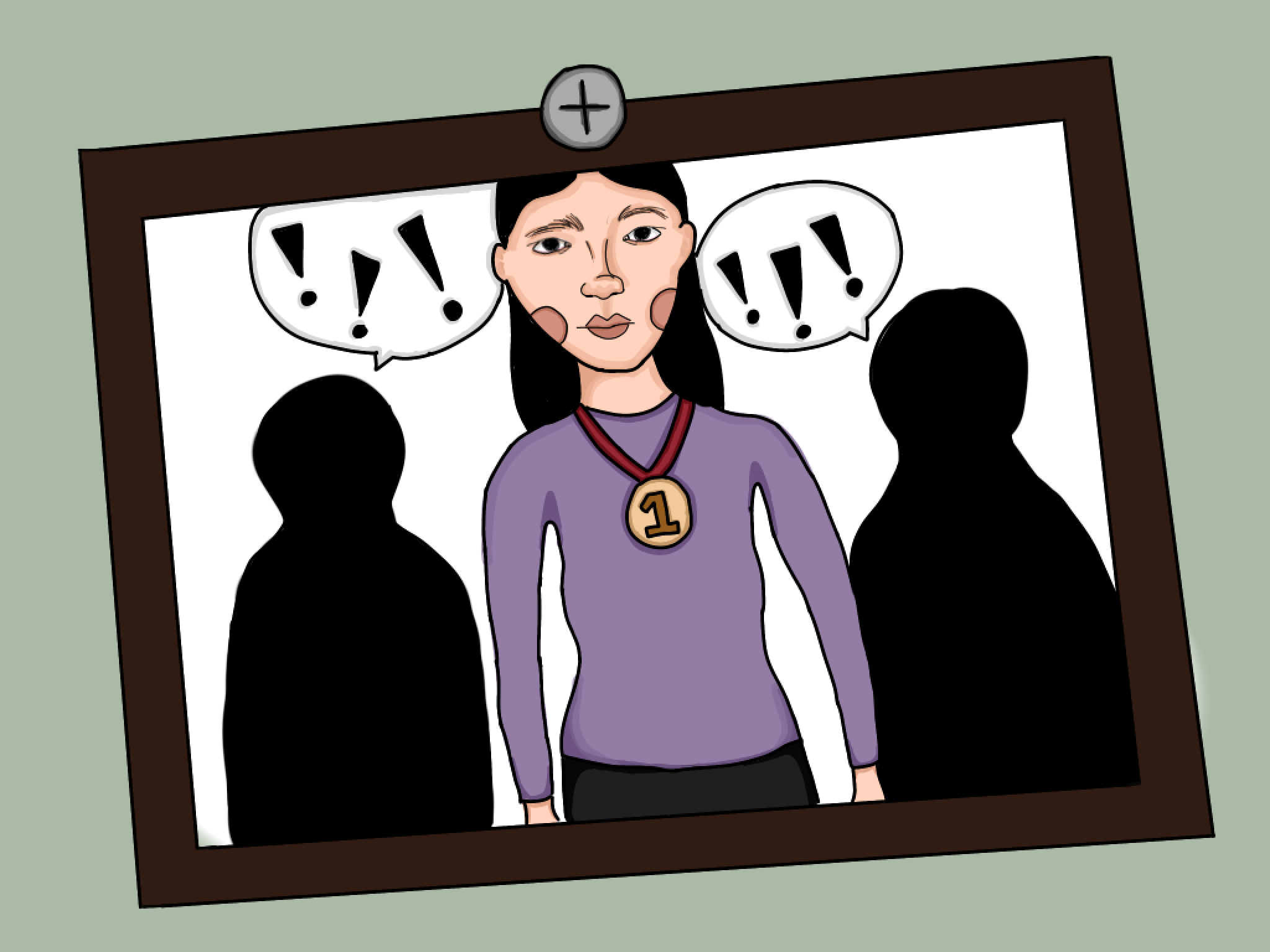Estelle Handa
“I think when it comes to being a ‘model minority’, that shows up more in academics,” said Estelle Handa, a junior and tennis player at Berkeley High School. “Of course being good at sports is a great thing too, but there’s also a lot of importance on academics … and so in that sense it makes it harder to balance both sports and academics because if you’re trying to do well in both of them, then it can be kind of stressful,” Handa said.
For her, the pressure to do well in tennis is self-imposed, but it can sometimes come into conflict with pressures to prioritize school work and grades. Through this conflict, the model minority myth has an indirect impact on her athletics. Handa said “I have to keep both things in mind because sometimes I have to compensate like, if I have an exam coming up… I don’t practice as much or I leave practice early to go study.” Her tennis coach and some teammates do not always understand her decisions to emphasize school, Handa explained. “My coach doesn’t really get the studying part as much, he doesn’t understand why academics are so important for me.”
Alex Vu
“I’ve been very lucky to have parents who truly do care about what I’m interested in, so I feel very loved in my household,” explained Alex Vu, a junior at BHS. However, the model minority manifests for him in difficult relationships with extended family such as grandparents and uncles who push him to be “focusing on school and not devoting time to something that won’t make me money in my life,” such as athletics, he said. He added that “there’s less (pressure) to be a perfect athlete and more to not be an athlete.”
“It does just kind of suck having people I admire and care about not value what I care about as much as other things,” he said. “Because [these family members’] values are so misaligned with what I value, it’s been hard to find something to connect us,” he continued. As he has matured, “finding who I am and realizing, I don’t wanna be a doctor,” he has become confident in not “[putting] a lot of pressure on myself to uphold the standards that they have set for me.” He translates this philosophy to those around him, intentionally avoiding putting pressure on others to follow a certain academic and career path. “Family is so important to me and my culture and who I am. It would be really sad to not have that connection to family because of something I’m doing and decisions I’m making for someone else,” he concluded.
Shima Dixon
Shima Dixon, captain of BHS varsity girls soccer, explained that it wasn’t necessarily her mom’s culture that directly influenced her, but rather “it was more that my parents together just wanted me to be a very competitive athlete,” Dixon said.
“I did notice that there was a lot of strict discipline that was implemented by my mom in my life,” Dixon said, explaining that it wasn’t particularly related to athletics, but more for balancing the student athlete lifestyle. Additionally, she found the model minority myth much more prevalent in other aspects of her life, especially in academics, and felt that the stress from her life at school has occasionally influenced her athletic focus and performance.
She observed that the majority of her teammates, regardless of race, experience a lot of pressure from not just parents, but coaches as well, due to her playing soccer at such a high level.
“I’m not very good at responding to that kind of pressure so I kind of get defensive,” Dixon said, reflecting on her occasionally feeling resentful of her parents. “But I’ve realized that it is for bettering me as an athlete. So I try to respect it.”





